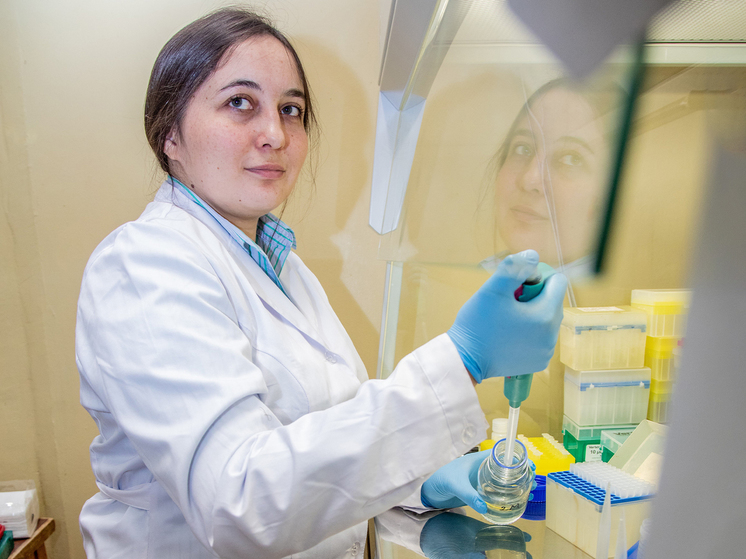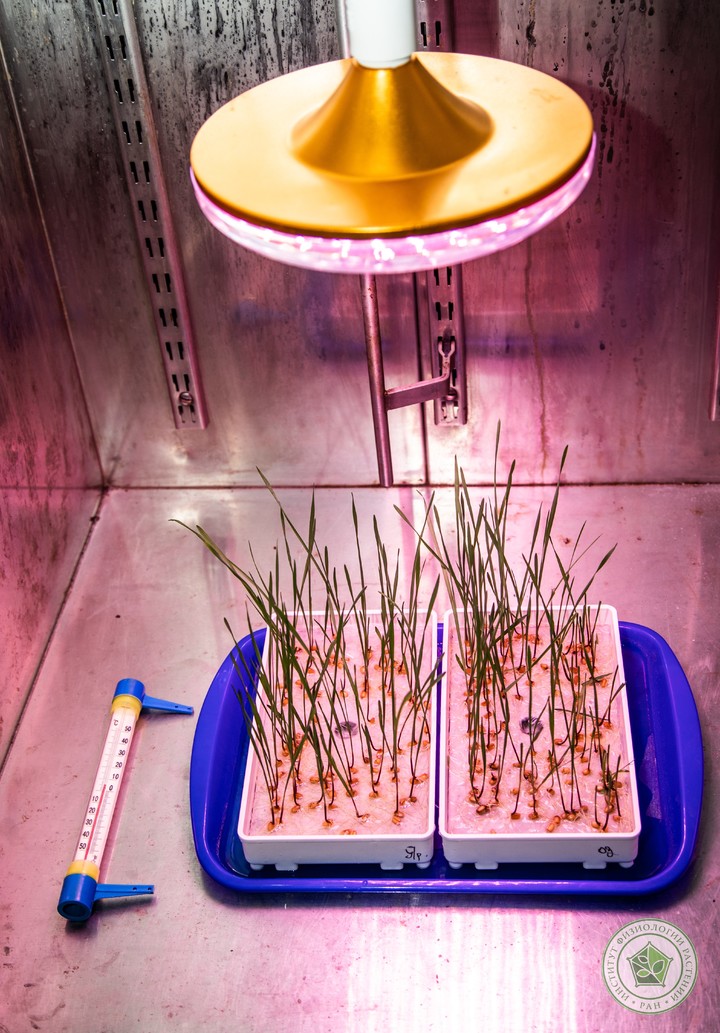This was done to increase its resistance to cold
Wheat, resistant to frost thanks to special gold treatment, was obtained by Russian scientists from the Institute of Plant Physiology named after K. A. Timiryazev RAS. We are talking about gold-based nanoparticles, which made it possible to obtain plants with altered metabolism. Their growth is doubled and the Wcor15 gene, which protects against cold, is activated.
 Ksenia Zhukova, researcher at the K.A. Timiryazev Institute of Frame Sciences of the Russian Academy of Sciences. Source: Yulia Venzhik
Ksenia Zhukova, researcher at the K.A. Timiryazev Institute of Frame Sciences of the Russian Academy of Sciences. Source: Yulia Venzhik
Breeders have long understood that in order to increase the frost resistance of agricultural crops in the northern regions, it is necessary to develop varieties in which, in cold conditions, sugars accumulate in the leaves, which play a role cryoprotectors. In addition, such plants have special genes that help them survive when exposed to low temperatures from -3 to -5 degrees.
To make plants even less sensitive to frost, scientists have proposed additionally processing the seeds gold-based nanoparticles.
 Sprouts of the Zlata genotype in a hardening chamber. Source: Yulia Venzhik
Sprouts of the Zlata genotype in a hardening chamber. Source: Yulia Venzhik
Such nanoparticles were proposed by employees of the Institute of Biochemistry and Physiology of Plants and Microorganisms of the Saratov Scientific Center. The 20-nanometer particles were able to overcome the seed coats and change the plant's metabolism.
Researchers tested the effect of different concentrations of nanoparticles on spring early-ripening Zlata wheat. It usually withstands frosts down to -3 degrees Celsius. After “hardening” By soaking its seeds with nanoparticles in special solutions, it could withstand temperatures of -5 degrees. The most effective concentration of nanoparticles was 10 micrograms per milliliter.
In addition, biologists analyzed the performance of leaves of treated wheat. It turned out that interaction with gold nanoparticles increased the sugar content in their cells by 16% and increased the activity of the Wcor15 gene, which is responsible for resistance to cold, by 8 times.
As reported by the Russian Science Foundation, the new the method of hardening plants can be used when adapting heat-loving crops to northern latitudes.























































Свежие комментарии